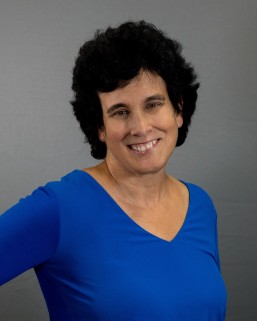A Message from Sue, Giving Thanks

I write with deep gratitude for your support and to ask you to again invest in us as we fight for rights, dignity, equity, and opportunity for youth. Please partner with us as we work to reduce the harm of the child welfare and justice systems, limit their reach, and ultimately abolish them so all young people can thrive.
We had great success in the past year and while we celebrate with thanks, we also bear down for the work ahead. With the passage of Pennsylvania's Act 1, we saw the culmination of years of labor from Operation: Education, and our first major win of the year for our youth advocates. Pennsylvania's Act 1 supports youth experiencing foster care, justice system involvement, and homelessness in their educational journeys by easing the process of credit transfer across educational institutions, and reducing the many barriers to graduation that these youth face. You can check out our PA Act 1 FAQ resource guide here.
The challenges ahead are profound. Last year, the Supreme Court ruled in Jones v. Mississippi that courts do not require a sentencing judge to make a finding of “permanent incorrigibility” before sentencing a youth to life without parole, a setback to our work of over 15 years of SCOTUS decisions advancing adolescent developmental science. State courts are interpreting that ruling as limiting federal constitutional protections against abusive sentences. We are developing new arguments under the federal constitution and state constitutions and laws. Your support is critical to this work.
On a national level and as a part of the Debt Free Justice Campaign, Juvenile Law Center released a groundbreaking report profiled by the New York Times challenging the harmful practice of juvenile restitution and offering restorative solutions. Our report found that ordering children to pay restitution magnified the existing racial and economic disparities in the juvenile justice system. Black, Brown, and Indigenous youth and youth living in poverty are more likely to enter the system, more harshly punished once they’re there, and have more trouble paying off financial obligations like restitution at the end of their case. Please continue to follow our progress to end all costs and fees in the juvenile justice system and share our communications on your social media.
We recently published Registering Youth in the Sunshine State: A Report on Florida’s Harmful Sex Offender Registration Laws, a Florida-focused follow-up to our 2020, Labeled for Life report. An issue as serious as sexual violence requires a response rooted in evidence. A common response nationwide is the practice of placing youth on sex offender registries. This failed practice does not advance public safety or prevent sexual violence . It has devastating consequences for registered youth and their families. This report makes the compelling case for abolition of Florida’s youth registration to align with the research and free up resources for evidence-based practices rooted in community.
Just last week, we held a press conference outside of the West Philadelphia Juvenile Justice Services Center to demand an end to the overcrowding and abusive detention in that facility. Youth at the JJSC have suffered a myriad of crises including understaffing, increased violence, and reported food shortages. Young people, advocates and family members shared solutions that do not involve sending our children far from their families and loved ones. You can listen to KYW's coverage of the event here.
Please support our work. Continue to share our messages across social media. Thank you for believing in our mission, and for daring to dream with us of a world where all young people can thrive.
